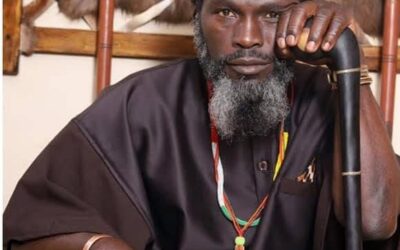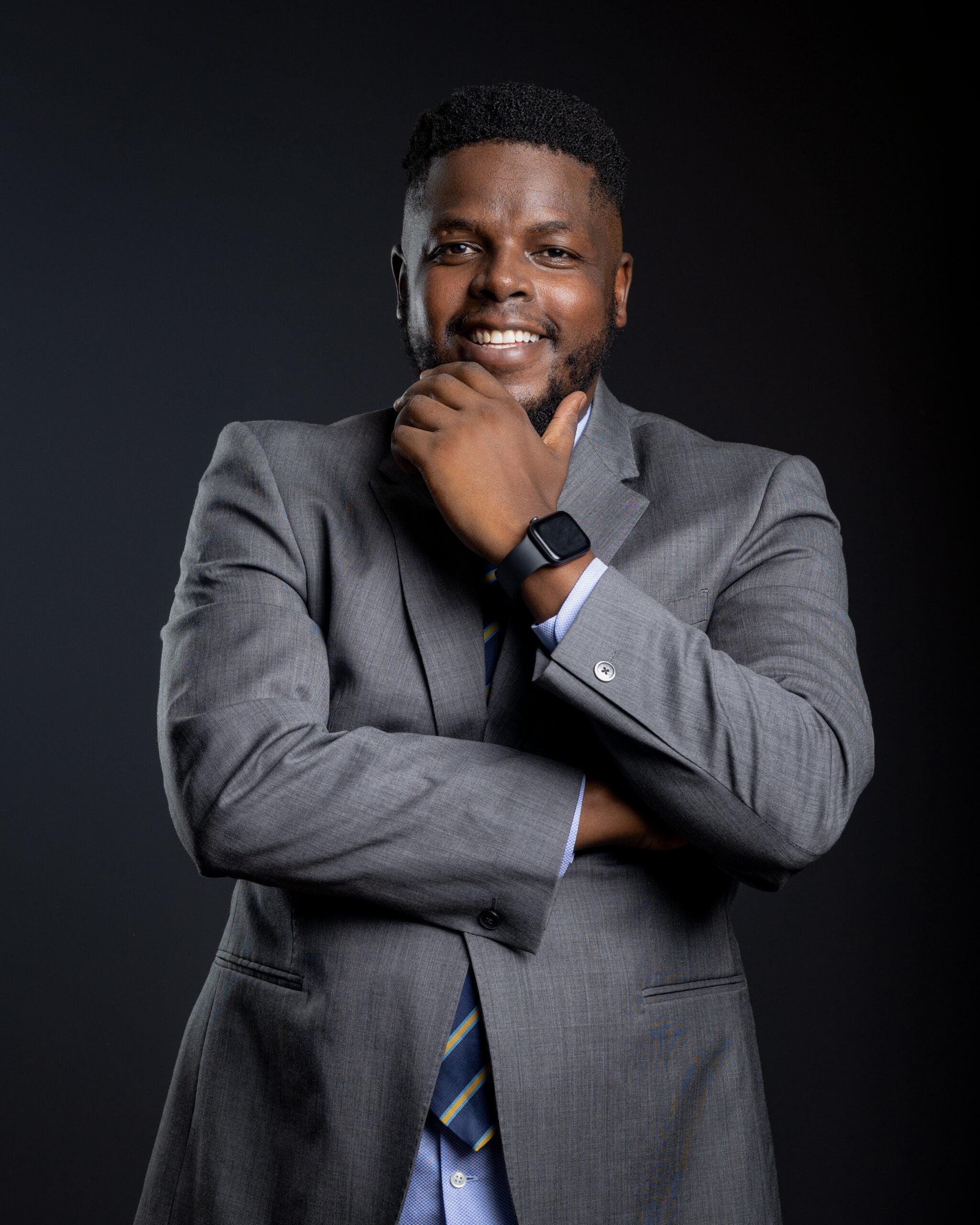By Bafana Phalane
In recent days, the Seventh-day Adventist Church in Zimbabwe has come under a storm of criticism over an incident during an evangelical campaign in Nyanga on June 14, 2025, labelled “Operation Macedonia.” At the centre of the controversy is a public address given by a government official, Mr. Sanyatwe, who briefly spoke from the pulpit after being invited by Mr. Kudakwashe Tagwirei. Advocate Thabani Mpofu, purporting to represent a concerned member of the church, has released a strongly worded letter accusing the church’s leadership of desecration, political co-optation, and gross negligence. However, upon objective scrutiny, these allegations are not only misplaced but appear to be driven by partisan motivations disguised as spiritual concern. Let us be clear: nothing illegal, immoral, or spiritually inappropriate took place at Nyanga.
Advocate Mpofu’s complaint revolves around the claim that the pulpit was “desecrated” because a government official made political statements. This reasoning is problematic and inconsistent with the SDA Church’s long history of engaging with societal leaders. The SDA Church is a global institution known for upholding Christian principles, civic engagement, and moral accountability. The presence of a politician in church, especially one invited to greet congregants is neither unusual nor prohibited. In fact, it is both common and appropriate for national and local leaders to attend religious functions and to address congregants respectfully. To suggest that such presence amounts to desecration is to falsely equate political presence with spiritual corruption. It is a flawed assumption that the moment a politician steps into the pulpit, spiritual values vanish. Political leaders, like any other members of society, are human beings with the right to worship, to fellowship, and, when invited, to address the congregation. Mr. Sanyatwe did not take over the church service. He spoke briefly and left. There was no distortion of doctrine, no manipulation of the sermon, no alteration of liturgical order.
History is well stocked with examples of the SDA Church welcoming heads of state, ministers, and community leaders. Whether it’s in Malawi, Kenya, South Africa, or the United States, Adventist congregations have hosted presidents and politicians who came to worship or support church development projects. No one cried desecration when U.S. President Dwight Eisenhower praised SDA medical missionaries in the 1950s, nor when Zambia’s President Edgar Lungu attended Adventist gatherings. The same applies to local Zimbabwean contexts. Mpofu’s claim that permission must be granted by the conference before any non-Adventist speaks from the pulpit is contextually and procedurally inaccurate. While the church discourages unauthorized speakers conducting entire services, it has never forbidden brief greetings or acknowledgements, especially from invited guests. In this case, Mr. Tagwirei, a respected member and supporter of the SDA Church, extended an invitation to a well-known public figure. That is not unusual; it is cultural, practical, and normal.
The complaint cites various provisions from the SID Working Policy and SDA Church Manual, including rules around unauthorized presentations, pulpit use, and neutrality in politics. However, these are taken grossly out of context. The policies cited do not forbid the church from engaging or dialoguing with political actors, they merely guide how political messaging should be managed within the church to avoid overt partisanship. To suggest that Mr. Musara and Mr. Timuri have abdicated their duties simply because they did not interrupt or publicly rebuke a political visitor mid-sentence is unreasonable. Their presence did not indicate approval or complicity, it signalled pastoral responsibility and civility. A Sabbath gathering is not the forum for confrontation. If indeed any line was crossed (which is debatable), the appropriate method of resolution would be pastoral dialogue, not weaponized legal threats.
It is ironic if not hypocritical that the very people accusing the SDA Church of being politicized are themselves bringing politics into the sanctuary. Mr. Mpofu’s letter, couched in legalistic language, is infused with partisan undertones. He presents himself as a voice of spiritual concern, yet what he is really doing is using his position as a known opposition figure to score political points against individuals he associates with the ruling party. If anyone is turning the pulpit into a battlefield of politics, it is the author of the letter himself.
The SDA Church must not be dragged into opposition politics or turned into a courtroom for public litigation. It is not for Mr. Mpofu to dictate who can or cannot visit the church based on their political background. If the opposition would like to attend or speak, let them respectfully request like everyone else. The pulpit is not a monopoly of one ideological side. Just as the church should not campaign for political parties, it also should not become a platform for opposition propaganda disguised as doctrinal purity.
Another sensationalist claim made in the letter is that the presence of a politician “violated the Sabbath.” This is theologically baseless. The Sabbath is a day of worship, rest, and spiritual rejuvenation not isolation from the world. If anything, inviting leaders of society to witness Sabbath worship can be a powerful testimony of faith and an opportunity for evangelism. Jesus himself dined with tax collectors, spoke with centurions, and healed on the Sabbath, these actions far more “provocative” than a politician making a short speech.
To turn the Sabbath into a rigid wall against social interaction is to lose sight of its purpose. What took place in Nyanga was a public recognition of a guest not a sermon, not a campaign, not a rally. It was a reflection of Christian hospitality and openness.
If the opposition feels strongly about representation in church spaces, the way forward is engagement not condemnation. Let them submit a formal request to visit the church, present their message, or contribute meaningfully to church programs. The SDA Church does not discriminate. It simply upholds order and structure. What must be avoided is this weaponization of the church for legal showmanship. The church is not a courtroom. The pulpit is not a podium for political grudges. No church policy was violated. No scriptural principle was undermined. What we have here is an overreach by one individual seeking to impose his political ideology through legal intimidation.
The SDA Church is a spiritual institution first and foremost. It exists to uplift Christ, serve communities, and proclaim hope. It is not an extension of any political party, ruling or opposition. By inviting public figures to church, the SDA Church is not endorsing their politics, it is living out its mission to engage the world in truth and love.
Rather than view the Nyanga incident as desecration, we should see it for what it was, a brief, imperfect, but well-intentioned interaction between the church and civic society. If there are concerns about the tone of what was said, let them be addressed through humble dialogue not hostile legal letters.
The call by Advocate Mpofu for the removal or sanctioning of spiritual leaders is both disproportionate and unfounded. Let the church resolve internal matters through its spiritual processes, not through partisan litigation.
Let us not turn the house of God into a battleground for political egos.
Bafana Phalane: Editor and Founder @ Maverick Point








Thank you for the ssay that attempts to sanitize a dangerous occurence.
Update
The Zimbabwe Eastern Union Conf has written a letter apologizing and clarifying on the issue. Why..
Because Zim politics is very polarized and divisive. The statements uttered have huge political ramifications in the current environment. So attempts to downplay concerns is mockery to many zim adventists who have raised such with their leaders.
I hope the author is well informed about zim.politics and the history behind some of the actors mentioned.
This is a classic case where someone’s senses leave him unattended
Our SDA manually prohibits unsolicited speakers to come on the pulpit to talk controversial topics which divides the church..We as the remnant church we should desist from such acts..The church does not prohibit its members from becoming politicians but politics should not be discussed in the sacred house of the lord.What Kuda and Sanyatwe did is absolutely not good for the image of the church
I appreciate your comment, and I understand the polarized nature of Zimbabwean politics. However, my article focused on the procedural aspects of the church’s handling of the Nyanga issue, rather than taking a political stance. I emphasized the importance of addressing conflicts through constructive means, rather than resorting to intimidation and legal threats.
While it’s understandable that political affiliations can influence perspectives, I believe the church should strive to transcend party politics and provide a welcoming space for all individuals, regardless of their political leanings. By doing so, the church can demonstrate its commitment to unity and love, rather than perpetuating divisions.
I’m glad the Zimbabwe Eastern Union Conference has issued an apology and clarification, and I hope this gesture contributes to a more constructive dialogue. Ultimately, my goal was to encourage a nuanced approach to conflict resolution, one that prioritizes understanding and empathy over adversarial tactics.
1. In your submission, you state that Tagwirei extended the invitation to Sanyatwe. Regrettably, that assertion is inaccurate. The individual who was invited by the church was, in fact, the local Member of Parliament—Sanyatwe’s spouse—who was acknowledged in her capacity as the constituency’s elected leader. It becomes deeply problematic when invitations appear to be extended by individuals rather than through institutional channels.
2. Both the Union leadership and the congregants present on the day concur that what transpired was inappropriate. In fact, this was publicly acknowledged and addressed from the very same pulpit on that very occasion.
3. Speaking as a fellow pastor, I can affirm with confidence that had a member of the opposition been afforded that same platform and uttered similar remarks, the local pastor would have faced serious repercussions from the Conference.
4. While we may not be able to fully regulate the remarks made by community leaders from our pulpits, it is far more prudent to engage them beforehand and provide clear guidelines for their participation.